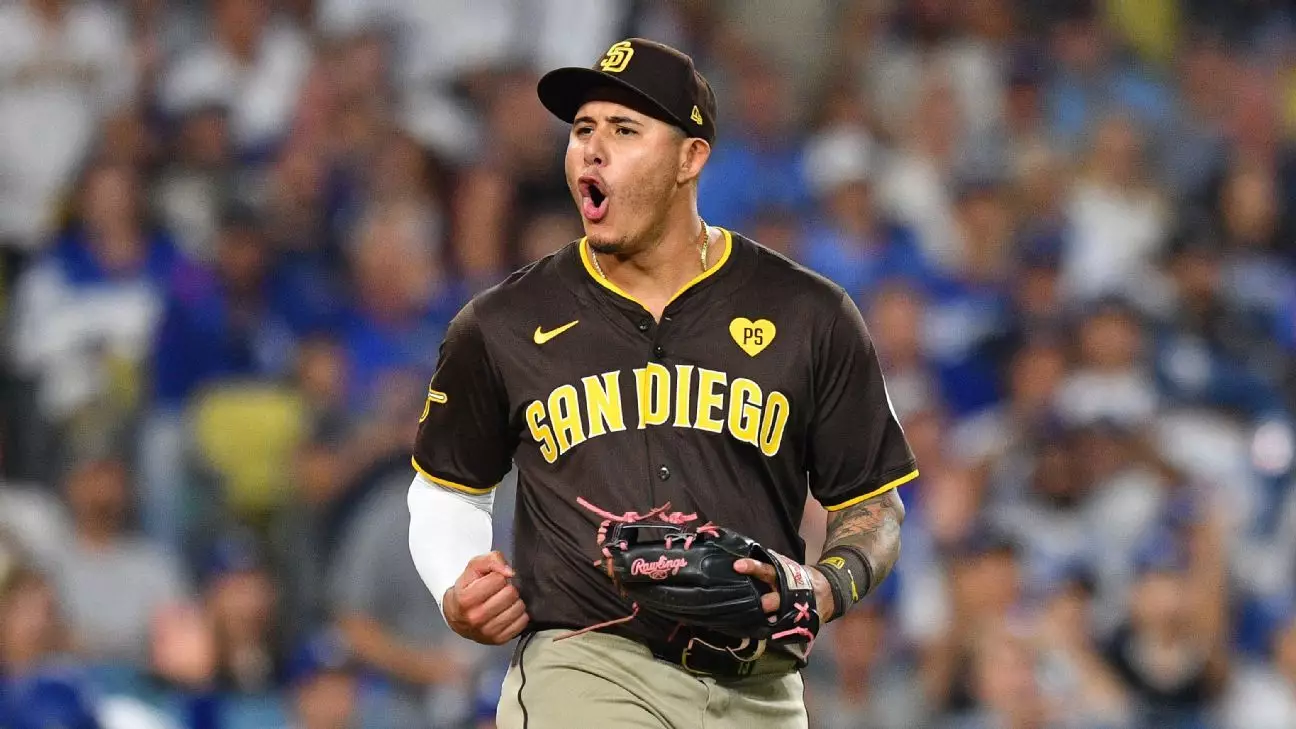In the high-stakes arena of Major League Baseball (MLB), passion and emotion often run high, particularly in playoff scenarios. Recently, a dispute surfaced between Los Angeles Dodgers manager Dave Roberts and San Diego Padres manager Mike Shildt concerning a play involving Padres third baseman Manny Machado. The situation took place during a tense Game 2 of the National League Division Series, where Machado’s throw unexpectedly veered toward the Dodgers’ dugout, prompting Roberts to label the throw “unsettling.” This remark sparked immediate reactions, particularly from Shildt, underscoring the powerful intertwining of sportsmanship and controversy in professional athletics.
Mike Shildt emerged as a steadfast ally for Machado, vehemently defending him in light of Roberts’ comments. Shildt’s approach hinged on a principle of non-disparagement, emphasizing his belief in focusing on the performance and character of players rather than resorting to critiques that could undermine camaraderie or mutual respect within the league. In a remarkable show of support, he highlighted Machado’s leadership skills, particularly in a chaotic moment where Dodger Stadium fans reacted intensely, throwing objects onto the field. The ability to galvanize teammates in such situations reveals not just Machado’s maturity as a player, but also his capacity to influence team spirit positively.
Seeking to dispel any misconceptions about Machado’s character, Shildt recognized his player’s significant contributions both on and off the field. He noted Machado’s eligibility for the prestigious Roberto Clemente Award, an acknowledgment of a player who demonstrates extraordinary community service and sportsmanship. This perspective shines a bright light on the narrative often overshadowed by competitive plays that capture headlines. It reiterates that athletes can embody leadership qualities and community engagement while participating in highly competitive environments. Shildt’s confident assertion that Machado has made notable strides highlights the broader theme of personal and professional growth amidst the pressures of sport.
Adding complexity to the situation, Major League Baseball conducted a review of the contentious play but ultimately decided against imposing any disciplinary actions against Machado. This development indicates that, after careful consideration, the league viewed the incident as part of the game rather than a deliberate attempt at inciting distraction or hostility. Shildt’s declaration of “zero” belief in the notion that Machado was deliberately targeting Roberts further emphasizes the importance of maintaining the integrity of players involved.
As the series progresses, both teams brace themselves for emotional intensity, acknowledged even by the opposing players. Dodgers third baseman Max Muncy highlighted the importance of channeling team energy constructively rather than falling into the traps set by opposing emotional dynamics. This sentiment serves as a reminder of the broader narrative in sports where emotional intelligence and focus can be just as pivotal to success as raw athletic talent.
The unfolding narrative surrounding Machado, Shildt, and Roberts illustrates the intricate dynamics of sportsmanship, leadership, and community engagement. It is a powerful reminder that at the heart of competition lies the responsibility of representing not just one’s team, but the essence of sporting integrity itself.


Leave a Reply